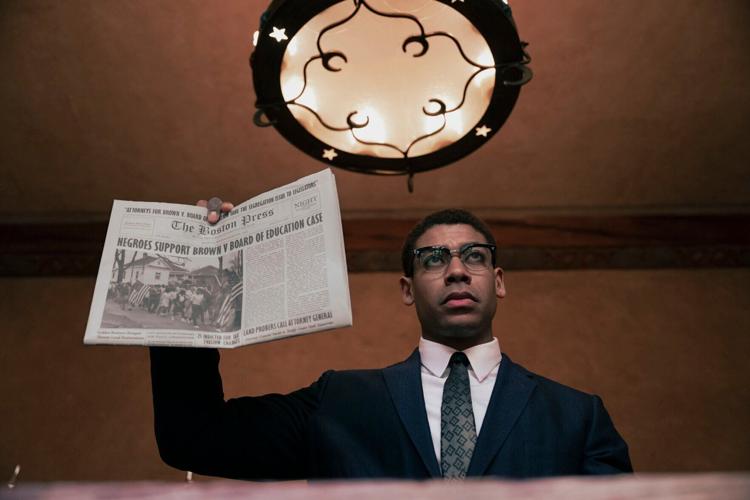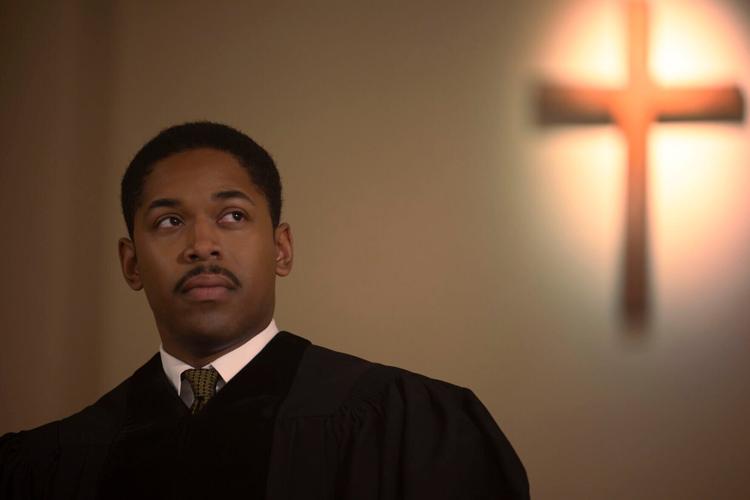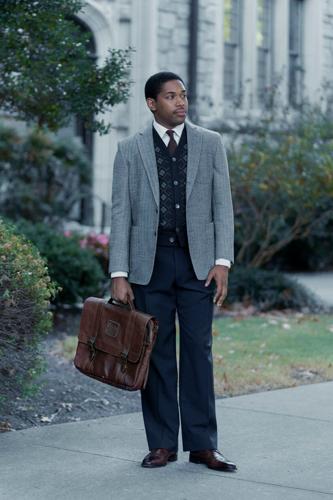Kelvin Harrison Jr. and Aaron Pierre can name the actors who have played Martin Luther King Jr. and Malcolm X on screen.
They also suspect those actors felt the same way they did when they began “Genius: MLK/X,” a limited series about the two Civil Rights leaders.
“I’m sure they were insecure and scared and wondering if they could do it as well,” Harrison says. “But I don’t think they regretted it. When I took it, I was like, as hard as this may be, I don’t know what I’m inviting into my life, but I know when I come out of it, I’m going to be a better person and my character is going to be stronger.”
Harrison, cast as Martin Luther King Jr., says the series taught him plenty, particularly about the way the two behaved in their early days.
“We wanted to reflect the actual ages of Dr. King and Malcolm X when they were achieving these things,” says Executive Producer Gina Prince-Bythewood. “Dr. King was 26 when he led the Montgomery bus boycott. When you portray them at that age, young people can see, ‘I can achieve that, too.’ We needed young actors who had the courage to take on these roles and the consciousness to know you have to get this right: Find your own Malcolm and Martin inside yourself and bring that forth.”
Malcolm X, played by Aaron Pierre, preaches in "Genius: MLK/X."
Kelvin Harrison Jr. as Martin Luther King Jr. in "Genius: MLK/X."
Not so close encounters
Harrison and Prince, who’s cast as Malcolm X, were part of an extensive search. Although the two had started working on a new version of “The Lion King,” they didn’t know each other. “The first time we actually met was on the set” of “MLK/X," Harrison says.
Surprisingly, Martin and Malcolm didn’t have many encounters, either. They were on parallel tracks, but in different parts of the country with different supporters.
For Prince-Bythewood and her husband, Reggie Rock Bythewood, it was important to tell a different story than most had seen or read. “We need to dispel the idea that you have to choose between Malcolm and Martin,” Rock Bythewood says. “Perhaps they are opposite sides of the same coin. If we embrace the messaging of both we feel there’s a contemporary solution to a lot of things we’re seeing right now.”
While the two easily could have written and directed the eight-part series, they put it in the hands of others. “It was a different challenge, a different way to use our creative muscle, to allow them to have a space to bring forward what they wanted to bring,” Rock Bythewood says.
A different approach
Damione Macedon and Raphael Jackson Jr., the two charged with telling the story, say they wanted to show how they men were as parents, husbands and sons. “We are humbled in what we thought we knew when we started this project and what we learned throughout,” Macedon says. “We felt our audience would have the same reaction, which is, ‘I did not know that.’”
Harrison and Pierre studied plenty before they even started filming.
“You question your ability…whether you have the endurance or the durability and you feel exposed and vulnerable,” Pierre says. “We feel very privileged to have had the opportunity to serve these great men.”
Because there’s enough material on each, “It was like there were two shows,” Harrison says. “We would see each other in passing and we’d get whispers (about the other). It would fuel me even harder. I’d hear how Aaron was approaching it and that helped mirror the experience.”
Both get big preaching scenes in “MLK/X,” which gave them a sense of what it might have been like to be religious leaders. “It’s very immersive,” Pierre says. “We were fortunate to have phenomenal background artists join us and love on us and support us during these days.”
That helped the two navigate other parts of the story, Harrison says.
It also helped them understand why the two did what they did.
Malcolm X, played by Aaron Pierre, is escorted from Temple in "Genius:MLK/X."

Martin Luther King Jr., played by Kelvin Harrison Jr., attends university.
Real objectives
“We wanted to elevate both and show the importance of both,” Prince-Bythewood says. “So often in history Malcolm has been villainized…but they followed what each other was doing. They pushed each other as they neared the end of their lives. They were actually moving closer and closer to each in the way they wanted to go about achieving the same goal.”
Today, Rock Bythewood says, young Black adults have nudged Malcolm X to the forefront.
“So much of what Malcolm was talking about was really the dignity of self,” Prince-Bythewood says. “His Pan-Africanism was a big part of his message…we need to hear that message more than ever,” particularly since some of his writings have been banned in several parts of the country.
“Martin and Malcolm’s storylines never touched,” Macedon says. “We also filmed it in a way that our actors weren’t on set at the same time purposely so we could savor the moment they meet. It was a challenge.”
Thankfully, producers had input from family members to make sure they weren’t missing details. “I don’t know if you can truly please everyone but you do the best you possibly can and, hopefully, you do it with honor and integrity.”
"Genius: MLK/X" airs throughout February on the National Geographic channel.
Bruce Miller, entertainment reporter at the Sioux City Journal, interviews Gina Prince-Blythewood and Reggie Rock Blythewood, producers of the National Geographic docuseries "Genius: MLK/X."
Bruce Miller, entertainment reporter at the Sioux City Journal, interviews Damione Macedon and Raphael Jackson Jr., producers of the National Geographic docuseries "Genius: MLK/X."










